 Child sex trafficking is a devastating crime that can go unnoticed in the hospitality industry. Traffickers take advantage of the privacy and anonymity provided in hotels to exploit vulnerable people, including children, through commercial sexual exploitation. Human traffickers often operate discreetly, so hotel staff can miss the warning signs of child sex trafficking. And when the victims are children, they often will not ask for help from strangers. Child sex trafficking happens more frequently than most people realize. So, it’s essential that hotel employees are properly trained in human trafficking awareness to be able to remain diligent and know how to spot a child sex trafficking situation. According to the 2021 Federal Human Trafficking Report published by the Human Trafficking Institute, the number of known child sex trafficking cases in the United States increased 17 percent between 2019 to 2020, and children made up over 66 percent of the victims in sex trafficking cases in 2020. Their ages ranged from 4 to 17, but 89 percent of the victims were between the ages of 14 to 17, with the average age being 15. Over 45 percent of these children knew their trafficker before they were exploited. While any child can become a victim of human trafficking, children who are homeless or runaways, foster care youth, LGBTQIA+ youth, Black or African American youth, Latine youth, and Native American youth are at a higher risk of being targeted by human traffickers. The warning signs of child sex trafficking can be apparent in subtle ways in the hotel environment. When hotel employees become aware of the indicators of human trafficking, they can learn how to identify and safely report potential child sex trafficking cases to their managers. Some of the warning signs of child sex trafficking in hotels include the following indicators:
Hotel staff can play a crucial role in combating child sex trafficking within their establishments by being properly trained in how to recognize the signs of human trafficking and how to safely respond to it. This can safeguard more vulnerable children, and it can help recover more children who have been reported missing to the National Center for Missing & Exploited Children. The Oregon Hotel & Lodging Association (ORLA) now offers free Inhospitable to Human Trafficking training provided by the nonprofit, Businesses Ending Slavery and Trafficking (BEST). By training front line hospitality staff to be able to identify the signs of human trafficking and providing them with clear protocols on how to report suspected cases, it can ensure a swift and appropriate response, especially when a minor is involved. Anyone under the age of 18 engaging in a commercial sex act is considered a victim of human trafficking by law, with no exceptions. Observing the behaviors of guests and reporting anything suspicious to hotel management can raise awareness and prompt quick and appropriate action to investigate suspected child sex trafficking cases. When employees are trained to report potential child sex trafficking to managers, hotels should have a plan in place for how managers report incidents to local law enforcement. Not only is this important for recovering missing and exploited children, but it is essential that hoteliers respond appropriately to protect their liability if a child is being abused on their property. By recognizing the warning signs of child sex trafficking in hotels and taking steps to safely report human trafficking, the hospitality industry can help make a big impact in protecting vulnerable children and recovering more human trafficking victims. | Katie Amodei Katie Amodei is the communications director for the nonprofit, Businesses Ending Slavery and Trafficking (BEST). Their goal is to help employers learn what they can do to make a difference in preventing human trafficking through awareness raising, consultation, training, and providing employment opportunities for survivors. This guest blog was submitted by Businesses Ending Slavery and Trafficking (BEST). For more information on guest blog opportunities, contact Marla McColly, Business Development Director, Oregon Restaurant & Lodging Association.
By definition, a captive audience meeting is a mandatory meeting during working hours. Captive audience meetings are an important tool for employers to explain aspects and implications of unionization (and other issues) that might not be readily apparent to many workers. How these meetings are conducted will differ from workplace to workplace. In 2009, the Oregon Legislature passed SB 519, prohibiting employers from taking adverse employment action against any employee who declines to attend a meeting or participate in communication concerning an employer's opinion about religious or political matters. Employers should consider their options accordingly. The Council of State Restaurant Associations produced an issue brief that provides valuable considerations for employers. ORLA members can access this brief in the Resource Library by logging in to OregonRLA.org. Not an ORLA member yet? Visit our Membership page or reach out the ORLA Regional Representative nearest you.
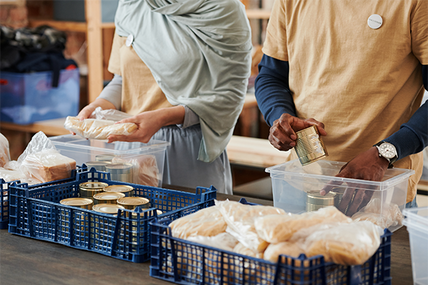 Guest Blog | Food Waste Stops with Me As a food service business, you have the power to create a positive impact in your community by donating your excess edible food to local food banks and pantries. Not only does this provide much-needed nourishment to your hungry neighbors, but it also comes with many benefits for your business. In this blog post, we'll explore the advantages of donating your surplus food and how you can establish a program with the help of local government staff. Support from Local Government Setting up a food donation program is a straightforward process, especially when you have the support of local government staff. They can provide technical assistance with donation dos and don’ts, best practices for success and connect you with food banks and pantries in your area, ensuring that your excess edible food reaches those who need it most. By working together, you engage employees to create a strong network of support that uplifts your neighborhood and builds meaningful connections. Liability Protection and Tax Incentives Potential liability issues are among the leading concerns for businesses considering donating their food. Federal and state laws protect you from liability when you donate food in good faith that you believe to be safe and edible (Bill Emerson Food Donation Act and Oregon Good Samaritan Law). Additionally, your business may be eligible for tax incentives provided by the federal government, further reducing any financial burden and encouraging participation in food rescue programs. Prevent Waste, Benefit the Environment The hospitality industry generates a significant amount of food waste. By taking proactive measures to prevent avoidable waste by donating your excess abundance, you contribute to a healthier environment. Not only can this act of kindness save you money on disposal fees, but it also promotes goodwill for your business. Embracing sustainable practices like sharing extra food and ensuring it is not unnecessarily wasted showcases your commitment to making a difference in your region. Enhancing Your Reputation and Community Engagement Not only is donating food a responsible and compassionate choice, but it also boosts your business's reputation. When your customers see your dedication to giving back, they view your establishment as one that cares about its most vulnerable community members. This supportive act can increase customer loyalty, improve employee satisfaction and influence others in your industry to follow your lead. Launch your food donation program today- it’s easy and rewarding! Visit FoodWasteStopsWithMe.org to learn more or to request assistance from a local food waste reduction specialist. SHARE YOUR STORY! Does your business have a successful donation program going? Share your experience to inspire other companies to follow in your footsteps! Click here and submit your Success Story- we can’t wait to hear from you! Food Waste Stops with Me is a collaboration between Metro, the Oregon Restaurant & Lodging Association, the Oregon Department of Environmental Quality, and city and county governments to help food service businesses reduce food waste. This guest blog was submitted by Food Waste Stops with Me. For more information on guest blog opportunities, contact Marla McColly, Business Development Director, Oregon Restaurant & Lodging Association.
Update: The National Restaurant Association hosted a webinar June 17 to discuss recent developments relating to U.S. DOL/OSHA’s Updated Guidance and the Emergency Temporary Standard (ETS), revised CDC Guidance for Vaccinated Individuals, the EEOC’s recent update of its Guidance for Vaccination and Compliance with the ADA and GINA, and what state and local “Vaccine Passports” mean for restaurants.  [Originally posted March 21, 2021] - In response to a number of inquiries on this subject, ORLA has compiled various sources of information on the topic. Please note, the following information is provided for informational purposes only, and should not be construed as legal advice. The Rundown: The vast majority of content reviewed on this subject urged caution. A number of exceptions exist within mandatory programs, including medical conditions, religious grounds and potential union bargaining (if applicable). Mandatory vaccination programs are subject to state and/or federal oversight (BOLI, OSHA, NLRB, EEOC) and can trigger program review and legal pitfalls, such as violating the Americans with Disability Act (ADA), the Genetic Information Nondiscrimination Act (GINA) and a host of potential medical, personnel and personal Data Privacy violations. Even if successful in navigating the external patchwork of state and federal agencies, an operator that chooses to adopt a mandatory vaccination program must then overcome internal operational issues, such as what steps must be taken when an employee chooses not to be vaccinated, how to then protect the rest of the workforce, reconfiguration of office space, schedule changes and the like. The Bottomline: While mandatory vaccinations are allowed, a mandatory vaccination program is not advisable. The downside seems too great of risk for operators large and small. Employers are encouraged however to promote employee self-education for vaccination acceptance, support voluntary vaccinations, follow the guidelines of local, city and state health authorities, provide their workforce the flexibility for designated group vaccination schedules and work with local Chambers and trade associations. Here is a list of resources providing information on vaccines in the workplace:
For questions, please reach out to your Regional Representative. We welcome industry members' article submissions relevant to the restaurant and lodging industry in Oregon. Association members are primarily considered and encouraged to share expertise and perspective following the guidelines below for submitting an article. Please note, we do not publish press releases. The criteria outlined below in no way guarantees your submission will be published at all, or that a submission will appear in any particular issue. The submission should satisfy the criteria, but is entirely subject to editing for length and content.
To submit an article for consideration in any of ORLA's communication vehicles please email Editor, Lori Little, at [email protected]. Guest Blog Submission Guidelines
To submit a guest blog post, contact ORLA’s Director of Business Development Marla McColly at 503.428.8694. Guest blog posts are considered sponsored opportunities. 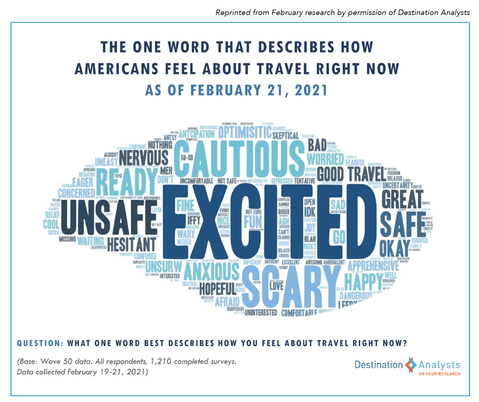 A New Training Tool Can Help A picture is worth a thousand words. Excited and Cautious, Ready and Scary sums up the attitude of guests who may soon be walking through our doors for the first time in a year. Increasing numbers of home-bound travelers are tentatively scheduling vacations while many take-out diners seek to enjoy a meal somewhere inside other than home. Still, top of mind for most people who have stayed home since the pandemic’s first lock-down is safety. Tripadvisor's research on travelers’ booking criteria in 2020: 92% said “Cleanliness is the most important factor in selecting accommodations.” According to an OpenTable survey, a high percentage of consumers indicate that they make their dining choices based on the comfort level they have with a restaurant’s safety protocols. YOU may be confident about the procedures you have put into place, but how can you help make your potential customer feel comfortable enough to venture out for the first time? Research shows that how you communicate pre-arrival is exceptionally important to ease concern. Best Practice: Just as you have probably expressed on your own website, both Tripadvisor and Yelp have added space for businesses to describe their Covid safety practices. Balanced messaging is important, however. Having an enjoyable experience is, as it always has been, the motivation for travel and for dining out. While using the word ‘contactless’ can convey a good safety practice, might it also sound sterile to someone who is yearning to break out of forced isolation? Describing what guests can expect in terms of safety and enjoyment is consistent with hospitality that distinguishes a property. Read remarks from a few properties that are highly ranked, and you will notice comments such as, “though the confirmation said that amenities could be limited, we appreciated they told us that the pool was available by reservation so social distance could be maintained and we could still use and enjoy it....” Or, perhaps, “because of Covid, while it wasn’t the same busy and high energy atmosphere we had previously enjoyed, our server went out of his way to be extra-friendly and the food was as delicious as always so we will continue to return." Emphasizing that you seek to provide both a safe and enjoyable atmosphere is the balance that many customers seek not only to make, but to keep, their reservation. Ensuring that guests experience both will boost confidence and return intent. What If? Have we ever been as aware of the CDC or FDA as we all are these days? With this kind of emphasis, you can anticipate that many guests will be very observant about how closely your team follows recommended safety practices and even compare yours to other locations they have visited. Being a germaphobe is not as nerdy as it used to be. A friend shared with me that, after observing how hastily a bus person wiped down the table when a diner left, she decided not to stay because it did not seem very thorough for Covid cleanliness concerns. Another friend told me that they chose a hotel based on the property’s Covid Safety Health Pledge. After noticing some cobwebs in their room, however, they felt nervous about how closely that pledge was followed, and they regretted their travel plans. She has not traveled since. I wondered if their reactions might have been different if they had conveyed their concerns to a service person who was able to respond and re-instill confidence? I realized that the situation was similar to any complaint about a misstep and that confidence may have been recoverable if handled correctly. At least there would have been a chance, anyway. The walk away is probably a forever lost opportunity and the potential word of mouth even worse. Best Practice: While cleaning used to be something we did in the background away from guest sight, we now realize that allowing customers to see it in action can be a confidence builder. Seeing is believing. What plans do you have in place with your team members to address guest observations that may be similar to the concerns voiced by my friends? No matter how much we plan and practice, there are bound to be at least a few protocol missteps and/or encounters with highly sensitive guests. Are your associates as confident with words and actions they should take to address a guest’s safety concerns as they would be with typical pre-Covid complaints? Anticipating challenges and preparing credible responses can help repair a guest’s confidence and ensure that your safety goals are met. New Resource: The Oregon Hospitality Foundation, ORLA’s nonprofit 501c3, has just released a new and on-demand video-based training tool, Providing Service While Supporting Safety. The course addresses opportunities like those mentioned above. Four challenging scenarios are portrayed, communication, credibility, compliance, and creating a positive experience. Participants first watch an example of an ineffective service response which results in a negative guest experience. This is followed with narrative coaching and a more effective service approach is portrayed ending with discussion questions. Both restaurant and hotel versions are available, each with helpful worksheets, and both are offered with a Spanish subtitle option. Since time is a premium, scenarios can be viewed individually in less than 15 minutes. Course access is via sliding scale donation, group codes and tracking are also available. See more at OregonGuestServiceSafety.org. What’s next? A recent Destination Analysts report provides rational optimism about our industry’s recovery, with all momentum tied to the lessening of safety concerns. In the February 22, 2021 report, they note “Each week more Americans have been vaccinated as well as know others who have, more trips in the short term appear… As COVID-19 hospitalizations continue to decline after their January peak, Americans’ optimism about the month ahead soared an additional five percentage points in the last week, reaching another record high. Now 44.2 percent feel the pandemic situation in the United States will improve over the next four weeks...” While we all realize that turnaround will take time, earning and retaining consumer confidence in our industry’s safety practices, as well as creating positive experiences, will be essential to continuing momentum. | WENDY POPKIN, OREGON HOSPITALITY FOUNDATION About Wendy Popkin is the Executive Director of the Oregon Hospitality Foundation, a nonprofit 501c3 dedicated to providing educational, training, and philanthropic support to Oregon’s restaurant, lodging, and tourism industry. Wendy is a 35-year career veteran who describes herself as “fanatically enthusiastic about helping others enjoy the same type of fabulous career opportunities I have enjoyed in the hospitality industry.” OregonHospitalityFoundation.org 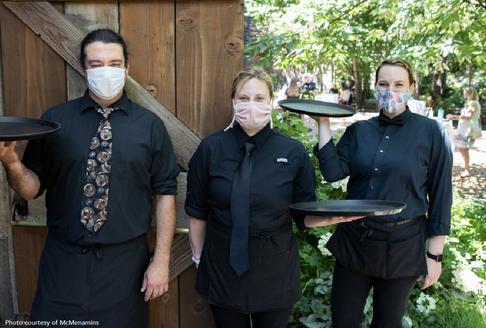 Why, Where to Begin, and Current Resources "The really important thing is that we be vulnerable with ourselves and with our teams in asking why Oregon doesn’t look like the rest of the country. We need to understand how we are influenced and make decisions based on biases that we have been conditioned with our entire lives. Recognizing the environment in which we live and operate can at times be a hard pill to swallow. But unless we are willing to challenge our status quo, we will be unable to evolve… and if we aren’t evolving, we are dying off….” Ken Henson, Director of Restaurant Operations, Pelican Brewing Company & Kiwanda Ken’s comment is so powerful to me. Being vulnerable and realizing that many of us lack the perspective and experience necessary to plan, create, and implement programs that encourage representation and participation of diverse groups in our organizations may feel daunting. And, though many of us have the desire, creating welcoming environments that are inclusive also of all guests’ needs is similarly challenging when we recognize that unconscious bias is a reality. What resources are available to help understand these challenges? I asked a few industry colleagues, who have been invested in diversity, equity and inclusion (DEI) work for quite some time, for recommendations and I’m including several of their favorites below. I will be posting more soon on the Foundation’s webpages. ACKNOWLEDGING THE NEED FOR STRATEGIC DIRECTION AND INVESTMENT Oregon history: why do we find ourselves where we are? Dawnielle Tehama, executive director of the Willamette Valley Visitor’s Association recommends this article to help everyone understand the history behind and the extent of bias which continues to present challenges in our state: https://bit.ly/RHofPDX. “Oregon is often touted as the most liberal State in the union, but the state continues to crawl from its deeply racist history…. In 1844, the provisional government of the territory passed a law banning slavery…. Any black person remaining would be flogged publicly every six months until he left. Five years later, another law was passed that forbade free African Americans from entering into Oregon.” Even as recently as 2016, “Portland is the whitest big city in America, with a population that is 72.2 percent white and only 6.3 percent African American… Because Oregon, and specifically Portland, its biggest city, are not very diverse, many white people may not even begin to think about, let alone understand, the inequalities.” Understanding unconscious bias – This exercise, a free online tool from Harvard’s Project Implicit®, can help team members understand the term and how, despite best intention, most of us do have unconscious bias which affects the way we perceive, approach, and respond to those who are different than us. The surprising results of these tests often convince participants about their own need for training assistance and may help create buy in: Implicit.harvard.edu/implicit/takeatest. SUCCESSFUL MODELS Company culture first – As the Director of People & Culture for Kimpton’s Portland properties, Alex Thompson is intrigued with successful DEI hiring, mentoring, and company culture models. He notes “While Slack is about as far away from hospitality as you can get and this article is a few years old, the principles are exactly the same. Key points include, ‘…the absence of a single diversity leader seems to signal that diversity and inclusion aren’t standalone missions, to be shunted off to a designated specialist, but are rather intertwined with the company's overall strategy.’” https://bit.ly/TAslackdiversity Alex says he also appreciates this article, https://wapo.st/3g4nb95, which notes, “DEI-forced training appears to have the opposite of the intended effect, companies need to find more organic ways to communicate values and expectations and influence outcomes.” Intention and result – Ken Henson shared the following with me, “Doing the right thing and wanting equality and inclusion for all isn’t enough. There are studies, such as this article in the Harvard Business Review (https://hbr.org/2001/04/race-matters), which document how and why even the best-intentioned recruiting policies often fail from lack of insight and proper support.” RESOURCES The Multicultural Foodservice and Hospitality Alliance (MFHA), whose mission is to “bring the economic benefits of diversity and inclusion to the food and hospitality industry by building bridges and delivering solutions,” offers a myriad of resources. These include free webinars ranging from ‘Moving Beyond Unconscious Bias with Cultural Intelligence’ to ‘Insights for Building Effective Multicultural Teams during COVID-19.’ Find out more including podcasts, Town Hall meetings, and speakers for hire at mfha.net/category/news/webinars. The American Hotel & Lodging Educational Institute collaborated with MFHA to create a five-part interactive training suite for employees that focuses on unconscious bias with topics that include Understanding Bias, The Impact of Bias at Work, and Dealing with Bias: Ours and Others.’ A Manager’s Training Edition is also available, visit ahlei.org/program/unconscious-bias. Recommended Reading - On Dawnielle Tehama’s extensive list of recommended reading resources she includes this article https://bit.ly/3qmH9AG, written in 2017 and updated July 2020. Topic groups include Talking About Racism, Anti-Racist Facilitation, and The Role of White People in Anti-Racist Work. The Oregon Hospitality Foundation is exploring opportunities to collaborate with statewide hospitality partners, as well as our counterparts in other states, with the intent to create an unconscious bias video training toolkit for Oregon’s frontline hospitality service staff. We will provide updates as we make progress with identifying funding for this project. “Everyone thinks of changing the world, but no one thinks of changing himself.” - Leo Tolstoy In the meantime, I would love to hear of your own favorite resources on these topics, so please feel free to drop me a line! | Wendy Popkin, Oregon Hospitality Foundation About Wendy Popkin is the Executive Director of the Oregon Hospitality Foundation, a nonprofit 501c3 dedicated to providing educational, training, and philanthropic support to Oregon’s restaurant, lodging, and tourism industry. Wendy is a 35-year career veteran who describes herself as “fanatically enthusiastic about helping others enjoy the same type of fabulous career opportunities I have enjoyed in the hospitality industry.” OregonHospitalityFoundation.org 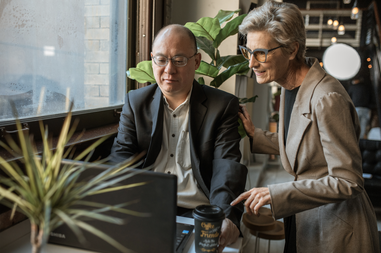 Confidential, No-Cost Advisor Network Made Possible by Coronavirus Relief Funds FOR IMMEDIATE RELEASE: November 18, 2020 Contact: Terry Hopkins, Regional Representative, ORLA 541.441.2219 | [email protected] Wilsonville, OR– The Oregon Restaurant & Lodging Association (ORLA) and Oregon’s Small Business Development Center (SBDC) Network are pleased to announce the launch of a new, no-cost, one on one confidential advisor network. The Oregon Restaurant Covid Assistance Program includes a network of seven professional restaurant consultants ready to assist industry operators with ongoing challenges posed by the pandemic. “We feel a strong sense of urgency to build program awareness now as independent restaurant operators wrestle with what comes next,” said Terry Hopkins, Regional Representative for the Oregon Restaurant & Lodging Association. “It is time for operators to engage in an exercise of humility because no one is bigger than COVID-19 and every single operator can benefit from an additional expert perspective.” Focal areas for advisor support were determined by a mass survey of restaurant operators earlier this fall. Results from survey feedback resulted in the following core areas of concentration:
Advisors are standing by to engage in confidential consulting conversations and are paid through SBA CARES Act relief funds authorized by the Emergency Board of the Oregon Legislature. Restaurants operators participating in the program will incur no cost for services rendered. “It was incredibly important to us to prop up a program that allows operators to sign up in less than 5 minutes to access these free top-tier consulting services,” said Hopkins. “We know this will prove to be a unique opportunity for restaurant operators who choose to take a leap of faith and engage an advisor. We can save independent restaurants in this state by sharing expertise and resources that assist our small businesses in finding a path forward.” To sign up for advisor connectivity and to review the list of participating advisors, visit: Oregonsbdc.org/orca. ### The Oregon Restaurant & Lodging Association is the leading business association for the foodservice and lodging industry in Oregon, which before COVID-19 provided over 180,000 paychecks to working Oregonians. Currently, approximately 55,000 of those workers, or 30%, do not have work available to return to. The Oregon Small Business Development Centers work in partnership with the Oregon Restaurant & Lodging Association in providing vital assistance to Oregon's restaurants.  A Family of Hardworking Winners “Find a group of people who challenge and inspire you, spend a lot of time with them, and it will change your life." – Amy Poehler, actress Many of us who have been around for a while refer to those in our industry as our “Hospitality Family.” The more someone works around those who are committed to service, the more connected and inspired they themselves often become. With the onset of the pandemic, never has the innovative spirit, business savvy, and caring soul of our ‘family’ been so challenged. Our team at the Oregon Hospitality Foundation (OHF) and the Oregon Restaurant & Lodging Association see the daily struggles of our hospitality business partners and have been inspired by the innovative solutions launched in response. Encouraged by these efforts to address their business’ and community’s needs, we too have initiated proactive efforts in support. FOUNDATION INITIATIVES In my last article, I mentioned that the foundation’s Board of Directors took steps to strengthen our organization, including: renaming ourselves the Oregon Hospitality Foundation, expanding our mission to support philanthropic projects, launching new fundraising programs, and creating new training support appropriate to current needs. What’s happened since? New Training We have received requests for training assistance with the unique guest service and communication difficulties currently being experienced because of the pandemic. In response, we are creating an online series of easily digestible micro-sessions that share tips on how associates can provide positive service while still supporting safety protocols. The theme, ‘an ounce of prevention is worth a pound of cure,’ focuses on helping prevent uncomfortable scenarios from escalating and causing unwelcome consequences by anticipating potential scenarios and practicing responses. Topics include;
We are grateful for a grant from Travel Oregon, sponsorship from Dutch Bros Coffee and EPB&B insurance, and our partnership with Togather Restaurant Consulting and VPW Media for their project support. We expect the series to be released in early fall. See release updates at OregonGuestServiceSafety.org. Takeout and A Movie Fundraiser Currently, we have raised and donated money to fourteen restaurants throughout the state who are providing a variety of solutions for helping feed those with food insecurity. Many of these restaurants are working to incorporate ongoing food support as part of their business model. Read more about these folks who are working hard to help change people’s lives by providing them with caring meals in our Champions article on page 16. You can also see a press release summary at bit.ly/OHFhelpawards. Additional awards are still available, see the application at OregonRLA.org/takeoutapp. We also collaborated with Cycle Oregon and Filmed by Bike to present a film festival and Q&A that focused attention on the economic benefits of the hospitality and tourism industry to Oregon’s communities and now our industry’s own critical need for public support. A portion of the event’s proceeds were donated to the Cycle Oregon Fund, a grant program that supports projects including tourism and community projects particularly in rural areas. Education Top of mind for many families are the myriad of struggles encountered in coping with the new demands of virtual education for students, parents, teachers, and our entire education system. We have been actively involved with discovering and creating resources for those who use our workforce training and Career & Technical Education (CTE) curriculum, such as ProStart. One example was our partnership with Rouxbe, an online culinary school for professionals, to provide their academic resources and videos to ProStart schools on a free trial basis and later for reduced fees. We are also seeking sponsorships and grant funding that will enable us to provide online and on-demand videos to support teachers’ virtual curriculum needs. The vision is to feature industry colleagues who will highlight various aspects such as job opportunities, facility tours, career pathways, customer service techniques, new safety protocols in place, and/or offer engaging skill-building demonstrations. Additionally, we are collaborating with Chemeketa Community College, the Oregon Coast Visitor’s Association, and the state’s workforce boards to ensure that quality hospitality training is available and accessible online, particularly for entry-level and supervisory positions. The goal is to help employees ‘hit the ground running,’ in order to reduce onsite training time needed and offer immediate value to employers. RESILIENCE I have yet to find the right words that portray my realistic recognition of the enormity of current challenges, particularly for our industry, nor my optimism that we will eventually recover. However, no one knows how to work harder than our Hospitality Family, so maybe the quote below is appropriate and helps explain my optimism about the outcome of our efforts, together. “As much as talent counts, effort counts twice.” - Angela Duckworth, American academic, psychologist and popular science author HOW YOU CAN HELP Unfortunately, looking toward the upcoming fiscal year, the foundation anticipates a 75 percent drop in revenue due to contract and sponsor funding reductions from affected partners. Your in-kind and financial contributions are greatly appreciated so that we may sustain and continue our good work. You can donate today at bit.ly/OHFDonation. Thank you. | Wendy Popkin, Oregon Hospitality Foundation About Wendy Popkin is the Executive Director of the Oregon Hospitality Foundation, a nonprofit 501c3 dedicated to providing educational, training, and philanthropic support to Oregon’s restaurant, lodging, and tourism industry. Wendy is a 35-year career veteran who describes herself as “fanatically enthusiastic about helping others enjoy the same type of fabulous career opportunities I have enjoyed in the hospitality industry.” OregonHospitalityFoundation.org 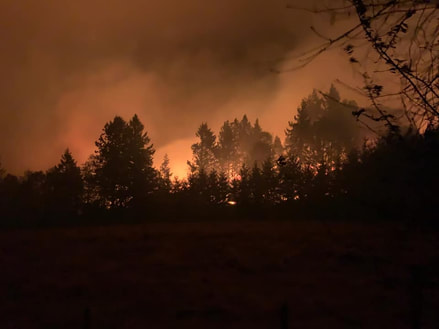 The word of the year is “unprecedented.” In our lifetimes, we have never seen such devastation – lives, property, and businesses lost to circumstances outside of our control. What is incredible is how many of you have responded. You saw the need and rose to the occasion, offering lodging for people who have lost everything, free meals for the community, and hope for the future. There is a reason Oregon is known for its hospitality, and it’s on full display in the most challenging of times for our industry. Thank you! We couldn’t be more proud of our community’s spirit and resolve. Because we know how challenging circumstances are right now, here is some information you need to know in response to Oregon’s wildfires. Public Safety Power Shutoffs Please be aware of current policies from your regional utilities. Both Portland General Electric and Pacific Power have indicated they will continue with policies to cut power in extreme conditions. Pacific Power has a monitor to check for potential areas affected by this policy. Portland General Electric has enacted shutoffs in response to the conditions near Mt. Hood; read more on the PGE FAQ. Utilities are generally looking at several factors before making this decision and are committing to proactive communication. The Pacific Power criteria includes:
Be sure to have a plan in place for such emergency conditions. Contact your local health authority for more information on what they would require for maintaining operations in an emergency. Feel free to contact your Membership Representative with questions or to connect with others who have explored this subject. How Can I Help? Please visit Travel Oregon’s Ways To Help During Oregon Wildfires, a guide for where to donate money, supplies, and volunteer time. To get the latest updates and links to safety registries, mental health resources, current condition reports, and more, visit Wildfire.oregon.gov. If you are looking for hotels offering discounts for fire evacuees in the valley, visit Travel Portland's resource page. Nicole Peterson ORLA Government Affairs Coordinator Get Certified through the Office for Business Inclusion and Diversity
Some government projects have specific requirements or targets for their contracts to be awarded to minority-owned, women-owned, service-disabled veteran-owned businesses, and emerging small businesses. The primary goal of Certification Office for Business Inclusion and Diversity (COBID) is to level the playing field by providing certified firms a fair opportunity to compete for government contracts regardless of owner ethnicity, gender, disability, or firm size. Discover which certifications you qualify for. Once certified, you are added to a database searched by many municipalities, state, and pseudo-government agencies, increasing your opportunities to compete for public contracting. Certifying your business for as many certifications as qualified for helps make it possible to grow and overcome barriers. Learn more about getting certified by visiting the Certification Office for Business Inclusion and Diversity online. |
Categories
All
Archives
June 2024
|
Membership |
Resources |
Affiliate Partners |
Copyright 2024 Oregon Restaurant & Lodging Association. All Rights Reserved.
8565 SW Salish Lane Suite 120 | Wilsonville, OR 97070-9633 | 503.682.4422 | 800.462.0619 | Contact Us
Site Map | Accessibility | Privacy Policy
8565 SW Salish Lane Suite 120 | Wilsonville, OR 97070-9633 | 503.682.4422 | 800.462.0619 | Contact Us
Site Map | Accessibility | Privacy Policy

 RSS Feed
RSS Feed


